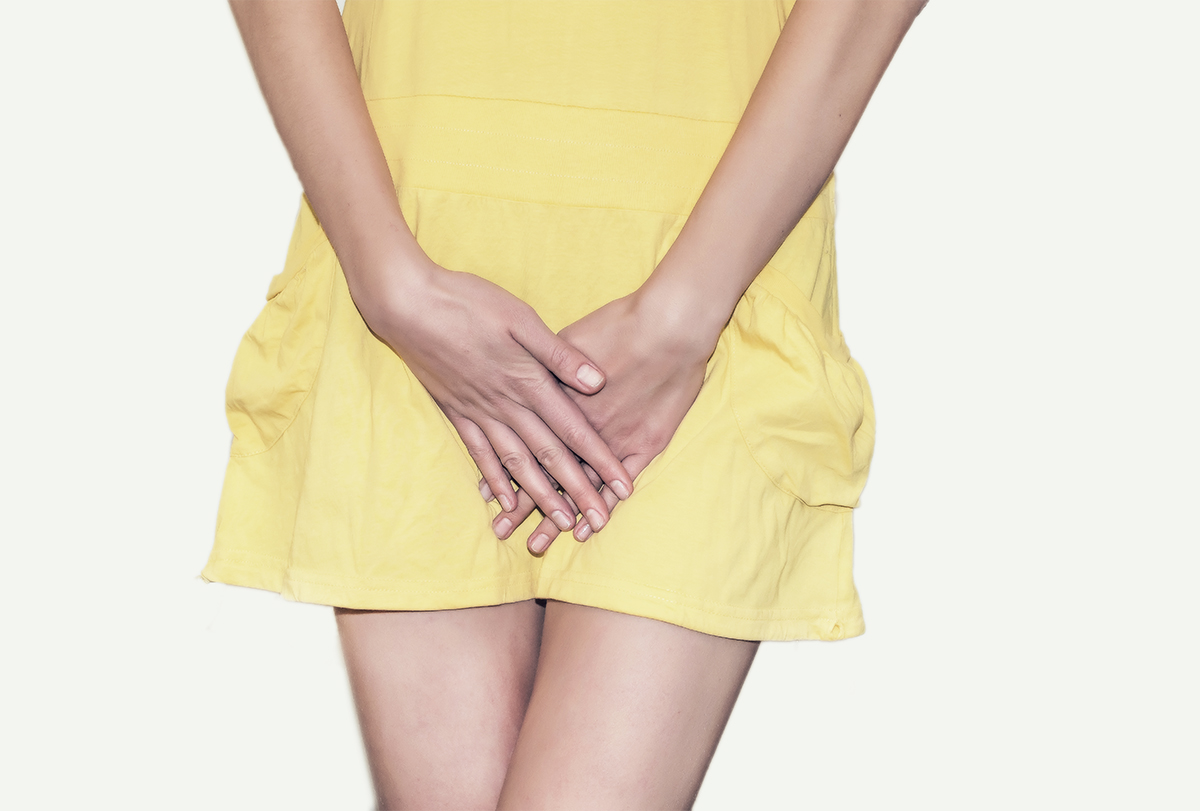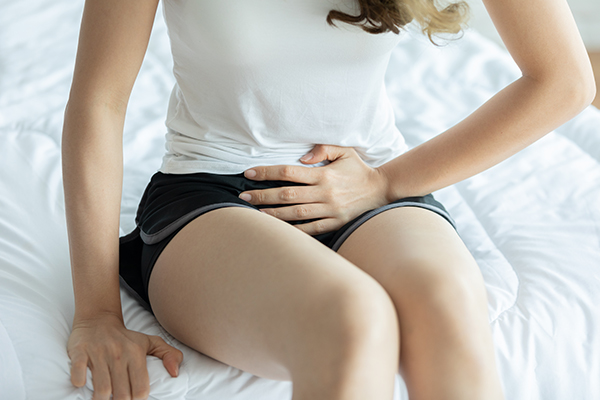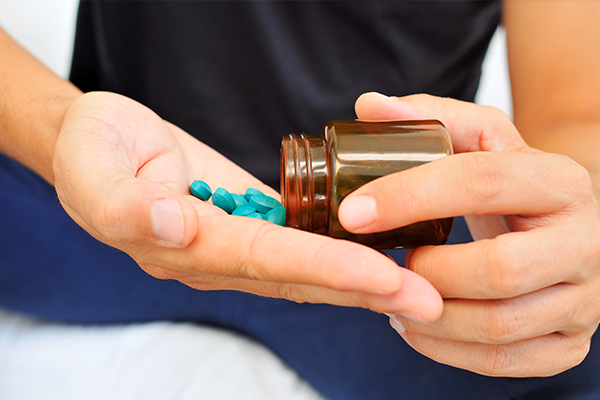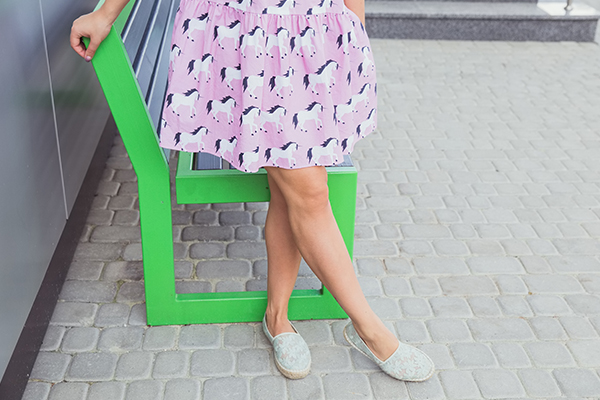In this article:
Estrogen is a female reproductive hormone whose production declines with advancing age. Low estrogen levels can dry out the skin of the vulva, causing itchiness, irritation, or general discomfort in the area.

Thus, the lack of moisture in the female genital area can invite a variety of vulvar skin disorders, which are highly curable but can worsen if left untreated. The treatment of any vulvar skin disorder depends upon its underlying cause.
What Is the Vulva?
The vulva is the external female genitalia. It includes the mons pubis, labia majora and minora, clitoris, vestibule, vestibular bulbs, Bartholin’s glands, paraurethral glands, and urethral and vaginal orifices. The vagina is not part of vulvar anatomy.
Common Vulvar Skin Disorders

Vulvar issues may arise from various causes, including infection, trauma, neoplasia, or immune responses. A few examples of these disorders are:
1. Lichen simplex chronicus
It is an intense itch-scratch cycle triggered by environmental factors (clothing, heat, sweating); chemical substances found in soaps, lotions, and laundry products; and occasionally food sensitivities. It leads to the thickening of the vulvar skin.
2. Lichen sclerosus
It is a chronic inflammatory skin condition typically found in postmenopausal women. Up to 30% of affected women have an associated autoimmune disease. (1)
3. Contact dermatitis
It is a vulvar skin inflammation caused by an irritant or allergy-inducing substrate, causing itchiness, redness, and vulvar swelling.
4. Infectious vulvovaginitis
It causes vulvar itching, redness, and swelling with vaginal discharge. It can be caused by various respiratory pathogens in prepubescent girls.
In adults, sexually transmitted infections caused by gonorrhea, chlamydia, herpes simplex virus, trichomoniasis, or HPV can be contributing factors. Candidal (yeast) infections and bacterial vaginosis are also potential causes of vulvovaginitis. (2)
5. Vulvar intraepithelial neoplasia (VIN)/malignancy (cancerous lesions of the vulva)
These conditions typically present with itchiness and a lesion. Pain, bleeding, and ulceration may also be initial complaints. Squamous cell carcinoma is the most common cause of vulvar cancer in patients.
6. Vulvodynia (idiopathic vulvar pain)
It occurs in the absence of relevant physical exam findings and without a clear identifiable cause, such as an infection, neurological, or skin disorder. The etiology of vulvar pain syndromes is often complex and multifactorial.
7. Hidradenitis suppurativa
It is a chronic disease caused by sweat gland-producing skin that leads to recurrent lesions. These lesions can then cause abscesses, fistulas, and scarring. This condition can occur in the inguinal, perianal, and perineal skin.
8. Other inflammatory skin conditions
Psoriasis and eczema can also affect the vulvar tissue.
Major Causes of Vulvar Skin Problems
Vulvar skin problems are caused by infection, trauma, neoplasia, or immune responses.
Signs and Symptoms of Vulvar Skin Disorders
Itching is the most common complaint associated with vulvar disorders, which may be accompanied by the following symptoms in the genital area:
- Pain (vulvodynia)
- Swelling
- Redness or discoloration
- Discharge
- Lesions or ulcers
How to Treat Vulvar Skin Disorders?

The treatment for vulvar disorders varies and depends upon the underlying etiology:
Infectious processes
Infectious processes are managed by treating the underlying precipitant (such as the use of antibiotics, antivirals, and antifungals).
Irritating and chronic conditions
Irritating and chronic conditions are managed by removing the offending agent, such as discontinuation of fragrant detergents, soaps, lotions, and/or fabrics. Corticosteroids and other immunosuppressant agents are also options for treatment.
Vulvar neoplasias
Vulvar neoplasias are often treated with ablative or surgical interventions. Topical therapy with immune response modifiers and antineoplastic agents can be used in certain populations of patients.
Vulvar pain conditions
Vulvar pain conditions such as vulvodynia must address a wide range of potential etiologies, so the approach to treatment is vast.
The most commonly used treatment modalities for such conditions include behavior modifications (i.e., vulvar hygiene and exercise), pelvic floor physical therapy, and cognitive-behavioral therapy/counseling, along with various medications, including injection therapy, oral medications, and topical ointments.
Home Remedies to Relieve Vulvar Irritation

Here are a few tips and therapies to soothe vulvar skin:
- In patients with vulvar pain disorders, stress reduction techniques and exercise (i.e., yoga), vulvar hygiene, and warm soaks with Epsom salt or colloidal oatmeal (3) can provide soothing relief.
- Ice/cool gel packs may be applied to the vulva at timed intervals to help with the burning sensation.
- Avoidance of constrictive clothing and wearing comfortable cotton underwear are additional strategies that can reduce pain.
- While exercise is recommended, avoiding exercises that apply direct pressure to the vulva, such as cycling and horseback riding. (4)
- Lubrication can be helpful in those with sexual pain because they moisturize the skin and reduce friction. I typically recommend water-based lubricants and encourage avoidance of alcohol-containing and warming agents, which can worsen symptoms. Vitamin E, coconut, (5) and olive oils can also be used as topical lubricants, although limited data support their use.
Self-Care Measures to Prevent Vulvar Skin Disorders
Appropriate hygiene is one of the first steps a woman can take to alleviate vulvar irritation and discomfort.

The following specific recommendations for vulvar hygiene is recommended by the National Vulvodynia Association (NVA.org): (6)
- Wear white (undyed) cotton underwear.
- Avoid pantyhose. Try thigh-highs or knee-highs instead.
- Wear loose-fitting pants and skirts.
- Remove wet bathing suits and exercise clothing promptly.
- Use dermatologically approved detergents.
- Do not use fabric softener on undergarments.
- Use soft, white, unscented toilet paper.
- Use lukewarm water or cool sitz baths to relieve burning and irritation.
- Avoid getting shampoo on the vulvar area.
- Do not use bubble bath, feminine hygiene products, or any perfumed creams or soaps.
- Wash the vulva with cool to lukewarm water only.
- Rinse the vulva with water after urination.
- Urinate before the bladder is full.
- Prevent constipation by adding fiber to your diet.
- Use 100% cotton menstrual pads and tampons.
What Causes Vulvar Cancer?
The following factors can put you at an increased risk of vulvar cancer:
- Cigarette smoking
- Previous history of cervical cancer
- HPV infection
- Chronic inflammatory conditions, such as lichen sclerosus, obesity, and immunodeficiency syndromes
- European ancestry
Signs of Vulvar Cancer
Patients with vulvar neoplasia commonly develop a lesion in the labia majora. Other areas of the vulva are less frequently involved.
The lesions may appear plaque-like, fleshy, or ulcerated. Patients may be asymptomatic or experience bleeding or vulvar pruritus (itchiness). The average age of diagnosis of vulvar cancer in the United States is 68 years. (7)(8)
Final Word
Be sure to see your gynecologist annually for well-woman examinations. Also, share any concerns you may have, especially if you are experiencing discomforting symptoms in the genital region.
- Was this article helpful?
- YES, THANKS!NOT REALLY


